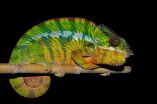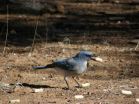'Pain sensing' gene discovery could help in development of new methods of pain relief
2015-05-25
(Press-News.org) A gene essential to the production of pain-sensing neurons in humans has been identified by an international team of researchers co-led by the University of Cambridge. The discovery, reported today in the journal Nature Genetics, could have implications for the development of new methods of pain relief.
Pain perception is an evolutionarily-conserved warning mechanism that alerts us to dangers in the environment and to potential tissue damage. However, rare individuals - around one in a million people in the UK - are born unable to feel pain. These people accumulate numerous self-inflicted injuries, often leading to reduced lifespan.
Using detailed genome mapping, two teams of researchers collaborated to analyse the genetic make-up of 11 families across Europe and Asia affected by an inherited condition known as congenital insensitivity to pain (CIP). This enabled them to pinpoint the cause of the condition to variants of the gene PRDM12. Family members affected by CIP carried two copies of the variant; however, if they had only inherited one copy from their parents, they were unaffected.
The team looked at nerve biopsies taken from the patients to see what had gone wrong and found that particular pain-sensing neurons were absent. From these clinical features of the disease, the team predicted that there would be a block to the production of pain-sensing neurons during the development of the embryo - they confirmed this using a combination of studies in mouse and frog models, and in human induced pluripotent stem cells (skin cells that had been reset to their 'master state', which enables them to develop into almost any type of cell in the body).
PRDM12 had previously been implicated in the modification of chromatin, a small molecule that attaches to our DNA and acts like a switch to turn genes on and off (an effect known as epigenetics). The researchers showed that all the genetic variants of PRDM12 in the CIP patients blocked the gene's function. As chromatin is particularly important during formation of particular specialised cell types such as neurons, this provides a possible explanation for why pain-sensing neurons do not form properly in the CIP patients.
"The ability to sense pain is essential to our self-preservation, yet we understand far more about excessive pain than we do about lack of pain perception," says Professor Geoff Woods from the Cambridge Institute for Medical Research at the University of Cambridge, who co-led the study. "Both are equally important to the development of new pain treatments - if we know the mechanisms that underlie pain sensation, we can then potentially control and reduce unnecessary pain."
PRDM12 is only the fifth gene related to lack of pain perception to have been identified to date. However, two of the previously-discovered genes have already led to the development of new pain killers that are currently been tested in clinical trials.
"We are very hopeful that this new gene could be an excellent candidate for drug development, particularly given recent successes with drugs targeting chromatin regulators in human disease," adds Dr Ya-Chun Chen from the University of Cambridge, the study's first author. "This could potentially benefit those who are at danger from lack of pain perception and help in the development of new treatments for pain relief."
INFORMATION:
ELSE PRESS RELEASES FROM THIS DATE:
2015-05-25
Scientists at the University of York's Centre for Quantum Technology have made an important step in establishing scalable and secure high rate quantum networks.
Working with colleagues at the Technical University of Denmark (DTU), Massachusetts Institute of Technology (MIT), and the University of Toronto, they have developed a protocol to achieve key-rates at metropolitan distances at three orders-of-magnitude higher than previously.
Standard protocols of Quantum Key Distribution (QKD) exploit random sequences of quantum bits (qubits) to distribute secret keys in a completely ...
2015-05-25
TORONTO, May 25, 2015 - A new, Ontario-wide study shows that rates of hospital readmission following a traumatic brain injury (TBI) are greater than other chronic diseases and injuries and are higher than previously reported.
The study, led by Dr. Angela Colantonio, senior scientist, Toronto Rehabilitation Institute, UHN, examined nearly 30,000 TBI patients discharged from Ontario hospitals over the span of eight years. Published in the May edition of Archives of Physical Medicine and Rehabilitation, the study found that about 36 per cent of patients with TBI had been ...
2015-05-25
Madagascar is home to extraordinary biodiversity, but in the past few decades, the island's forests and associated biodiversity have been under greater attack than ever. Rapid deforestation is affecting the biotopes of hundreds of species, including the panther chameleon, a species with spectacular intra-specific colour variation. A new study by Michel Milinkovitch, professor of genetics, evolution, and biophysics at the University of Geneva (UNIGE), led in close collaboration with colleagues in Madagascar, reveals that this charismatic reptilian species, which is only ...
2015-05-25
This news release is available in French. Certain blind individuals have the ability to use echoes from tongue or finger clicks to recognize objects in the distance, and some use echolocation as a replacement for vision. Research done by Dr. Mel Goodale, from the University of Western Ontario, in Canada, and colleagues around the world, is showing that echolocation in blind individuals is a full form of sensory substitution, and that blind echolocation experts recruit regions of the brain normally associated with visual perception when making echo-based assessments ...
2015-05-24
Seville, Spain - 24 May 2015: Cognitive impairment predicts worse outcome in elderly heart failure patients, reveals research presented today at Heart Failure 2015 by Hiroshi Saito, a physiotherapist at Kameda Medical Centre in Kamogawa, Japan. Patients with cognitive impairment had a 7.5 times greater risk of call cause death and heart failure readmission.
Heart failure patients with cognitive impairment may get progressively worse at adhering to medications, leading to poorer prognosis.
Heart Failure 2015 is the main annual meeting of the Heart Failure Association ...
2015-05-23
SAN DIEGO - Results from a new nationwide survey announced today indicate a steady increase in the number of pediatric patients who are being treated with proton radiation therapy for cancerous and non-cancerous tumors.
The research, led by Andrew L. Chang, M.D., medical director of pediatrics with the Scripps Proton Therapy Center, was presented during the 54th annual Particle Therapy Co-Operative Group (PTCOG) Conference in San Diego, which runs through May 23.
Based on a survey of all proton therapy centers in the United States, the number of pediatric patients treated ...
2015-05-23
Seville, Spain - 23 May 2015: Moderate to severe depression is associated with a 5-fold increased risk of all cause mortality in patients with heart failure, according to research presented today at Heart Failure 2015. The results from OPERA-HF show that risk was independent of comorbidities and severity of heart failure. Patients who were not depressed had an 80% lower mortality risk.
Heart Failure 2015 is the main annual meeting of the Heart Failure Association (HFA) of the European Society of Cardiology (ESC) and takes place 23 to 26 May in Seville, Spain. The scientific ...
2015-05-22
Many animals feed on seeds, acorns or nuts. The common feature of these are that they have shells and there is no direct way to know what's inside. How do the animals know how much and what quality of food is hidden inside? A simple solution would be to break the shells, which often takes time and effort -- it would be a big disappointment to know that it's rotten or bad after the hard effort of opening the nuts!
Can animals evaluate the food hidden inside the nuts? This is especially important for some animals who cache the food items for later use without opening and ...
2015-05-22
As a result of research performed by scientists at the University of Maryland School of Medicine (UM SOM), the U.S. Food and Drug Administration has approved the use of a drug to treat the deleterious effects of radiation exposure following a nuclear incident. The drug, Neupogen®, is the first ever approved for the treatment of acute radiation injury.
The research was done by Thomas J. MacVittie, PhD, professor, and Ann M. Farese, MA, MS, assistant professor, both in the University of Maryland School of Medicine (UM SOM) Department of Radiation Oncology's Division ...
2015-05-22
MANHATTAN , Kansas -- A recent study with Kansas State University researchers details vaccine development for two new strains of avian influenza that can be transmitted from poultry to humans. The strains have led to the culling of millions of commercial chickens and turkeys as well as the death of hundreds of people.
The new vaccine development method is expected to help researchers make vaccines for emerging strains of avian influenza more quickly. This could reduce the number and intensity of large-scale outbreaks at poultry farms as well as curb human transmission.
It ...
LAST 30 PRESS RELEASES:
[Press-News.org] 'Pain sensing' gene discovery could help in development of new methods of pain relief

